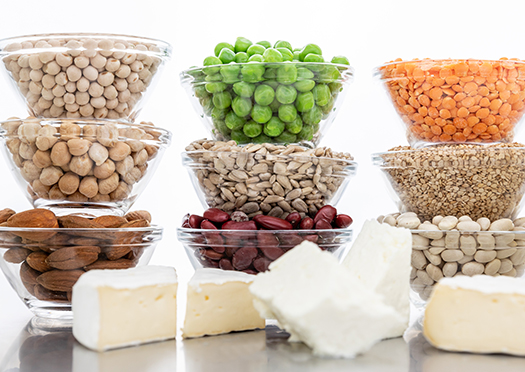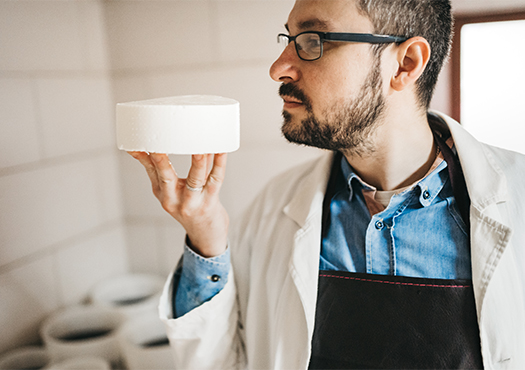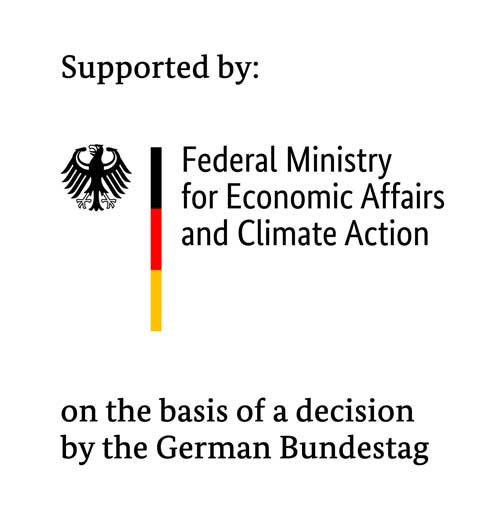In situ generation of cheese aromas through fermentation of purely plant-based raw materials



Cheese alternatives - taste, texture and nutritional value still need to be improved
Vegan cheese alternatives are becoming increasingly popular, resulting in a steadily growing selection of product variations on the market. However, the ingredients, texture and product taste are often criticised. The production process has a major influence on the sensory properties of cheese products. Lactic acid fermentation and ripening are the key process steps in the formation of the complex variety of aromas and elastic texture in traditionally produced cheese. In contrast to traditional cheese production, the production of vegan cheese alternatives usually involves processing starch with fat and adding cheese aroma. The fermentation and ripening steps are often missing, even though first scientific studies indicate that it is possible to produce cheesy aroma through microbial fermentation and ripening of plant-based raw materials. This development represents a major step forward in the production of vegan cheese alternatives.
Authentic cheese aroma through suitable fermentation and ripening processes
The aim of the KäromaVeg project is to develop plant-based cheese alternatives with authentic cheese aromas. The generation of the cheesy aroma is based on the microbial conversion of plant-based aroma precursors, which are found in selected plant proteins and oils. These precursor substances are certain amino acids and fatty acids, which are converted into aroma-active substances by the process of microbial fermentation. At the same time, special microorganisms are used to break down typical off-flavors of plant-based raw materials, such as grassy and beany notes. In this way, undesired aromas can be reduced and plant-based raw materials can be utilised more efficiently. In order to enhance desired and degrade undesired aroma compounds, the selected plant-based proteins and oils are formulated into a plant-based milk showing a similar composition to cow's milk, in terms of the macromolecules. The plant-based milk is acidified and coagulated by targeted fermentation with suitable microorganisms. Similar to the traditional cheese production process, the fermented, coagulated plant-based milk is finally pressed and subjected to ripening. During the ripening process, the desired cheese aroma is generated and the mass solidifies due to water loss to become a cheese-typical, elastic mass which results in products with an authentic cheese aroma and texture.
Vegan cheese alternatives are evaluated in terms of sensory and analytical properties
In the KäromaVeg project, the Fraunhofer IVV is developing a fermentation and ripening process to produce an authentic cheese flavor using plant-based raw materials. By selecting suitable microorganisms as well as plant-based proteins and oils equipped with the relevant precursors, a fermentation and ripening process for the production of an authentic cheese aroma is to be developed. The sensory characteristics of the fermented, plant-based preparations and the cheese alternatives produced from them are elucidated analytically using AEVA and GC-MS/O as well as sensory analysis using a trained panel. The developed cheese alternatives are compared with common non-vegan cheeses and classified in a flavor map.
The project consortium consists of the companies in the agricultural industry, ingredient manufacturers, starter culture and enzyme producers and dairies of the MIV Milchindustrie-Verbands e.V. (Milk Industry Association). The project consortium supports the developments at all stages.
Project term: |
2023 to 2025 |
Project management / funding: |
Arbeitsgemeinschaft industrieller Forschung AiF (through Industrievereinigung für Lebensmitteltechnologie und Verpackung e. V. - IVLV) / Federal Ministry for Economic Affairs and Climate Action (BMWK) |
Funding program: |
Program for promoting the Industrial Collective Research (IGF) of the Federal Ministry of Economic Affairs and Climate Action (BMWK), based on a decision by the German Bundestag |
IGF funding code: |
22883 N |
 Fraunhofer Institute for Process Engineering and Packaging IVV
Fraunhofer Institute for Process Engineering and Packaging IVV